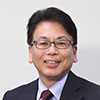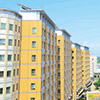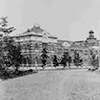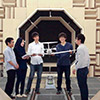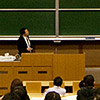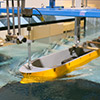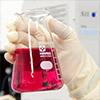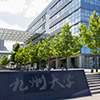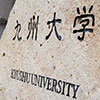Outline
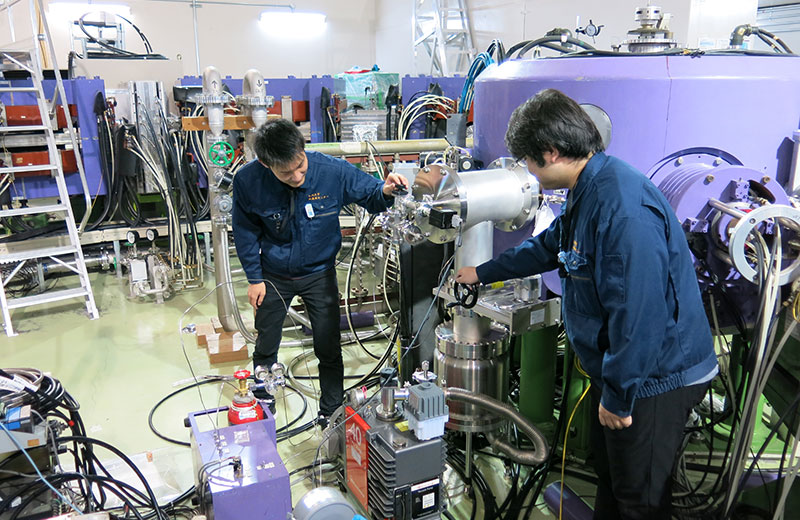 Quantum physics is relatively young, but rapidly developing field of physics studying the nature and peculiar properties of interaction between elementary particles constituting the basis of our world. Department of Applied Quantum Physics and Nuclear Engineering has been newly established in 2021 with the goal to foster young generation of scientists and engineers who will challenge the utilization of quantum physics in development of novel and advanced technology for our society.
Quantum physics is relatively young, but rapidly developing field of physics studying the nature and peculiar properties of interaction between elementary particles constituting the basis of our world. Department of Applied Quantum Physics and Nuclear Engineering has been newly established in 2021 with the goal to foster young generation of scientists and engineers who will challenge the utilization of quantum physics in development of novel and advanced technology for our society.
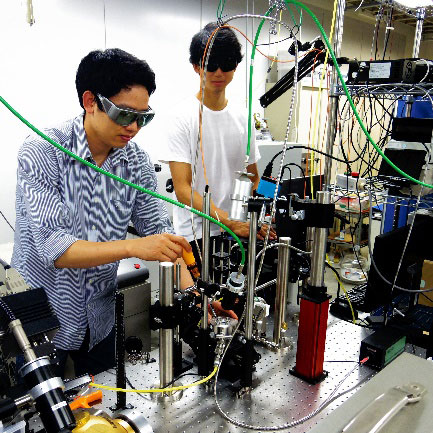 The advancement of technology in modern world has surpassed the scope of classical physics already. The development of many advanced technologies, such as semiconductors and superconductors technology, advanced measurement techniques using accelerators and electron microscopes, medical applications using high energy particle beams, energy generation technologies using nuclear fusion and fission, solar energy generation and energy storage technology, have enriched our lives, and all of them relies on the fundamental principles of quantum physics. To move further towards smart, energy efficient and environmentally friendly society, we need new, even more cutting-edge technology based on radical use of newest quantum physics advancements. If you are the one who wants to contribute to the new scientific and engineering fields, join us and study the fundamental of quantum physics and engineering. We have confidence that studying at this department grows yourselves, envisions the new concepts, and contributes to open the new era of quantum technologies.
The advancement of technology in modern world has surpassed the scope of classical physics already. The development of many advanced technologies, such as semiconductors and superconductors technology, advanced measurement techniques using accelerators and electron microscopes, medical applications using high energy particle beams, energy generation technologies using nuclear fusion and fission, solar energy generation and energy storage technology, have enriched our lives, and all of them relies on the fundamental principles of quantum physics. To move further towards smart, energy efficient and environmentally friendly society, we need new, even more cutting-edge technology based on radical use of newest quantum physics advancements. If you are the one who wants to contribute to the new scientific and engineering fields, join us and study the fundamental of quantum physics and engineering. We have confidence that studying at this department grows yourselves, envisions the new concepts, and contributes to open the new era of quantum technologies.
What do you learn?
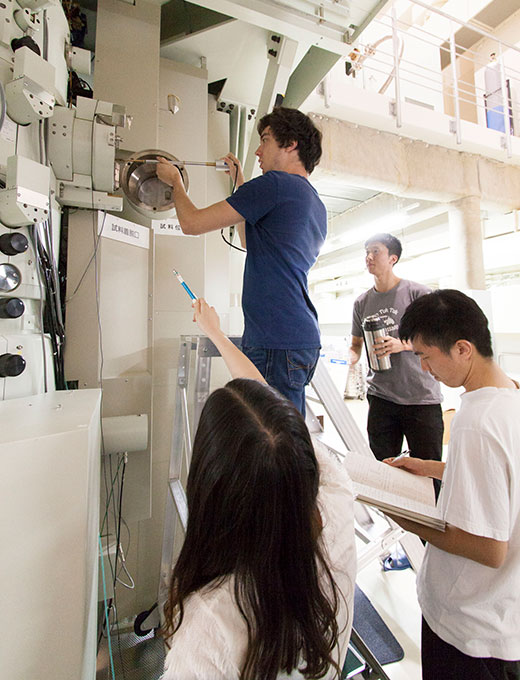 In the undergraduate course, you will learn systematically the basic physics subjects that make up modern physics, such as mechanics, electromagnetics, thermodynamics, and statistical mechanics, along with quantum mechanics and relativity theory. The curriculum also covers advanced physical subjects of applied physics, quantum beams, accelerator engineering, material science, nuclear physics, nuclear engineering, and so on, which helps you to acquire the basics of quantum physics and a sense of their engineering applications.
In the undergraduate course, you will learn systematically the basic physics subjects that make up modern physics, such as mechanics, electromagnetics, thermodynamics, and statistical mechanics, along with quantum mechanics and relativity theory. The curriculum also covers advanced physical subjects of applied physics, quantum beams, accelerator engineering, material science, nuclear physics, nuclear engineering, and so on, which helps you to acquire the basics of quantum physics and a sense of their engineering applications.
In the graduate course for Master and Doctor degrees, you will learn advanced specialized subjects. Education and research topics are broadly divided into the four fields:
- Nuclear and Radiation Engineering: Experimental and theoretical studies on nuclear reactions and interaction between the beams and materials are provided. Development of new “FFA accelerator” and radiation measurement apparatus utilizing superconductivity are also investigated extensively.
- Nuclear Energy and Nuclear Fusion Engineering: This area focuses on the development of attractive nuclear energy systems, such as future nuclear reactors and fusion reactors with excellent safety and reliability, as well as on issues that arise in the use of nuclear energy and their solutions, through theoretical and numerical simulations, basic and large-scale experiments.
- Functional Materials/Radiation Effects and Radiation-Induced Phenomena: The behavior of functional materials, including nuclear fuel and materials, magnetic materials, spin electronics materials, catalyst materials under extreme radiation environments are investigated in this area. We also investigate intensively the states of materials using quantum beams, and evaluate of various physical and chemical properties of materials.
- Applied Condensed Matter Physics: A wide range of researches aiming to use basic physical phenomena and characteristics of materials is provided to develop applied technologies on the cross of basic science and engineering.

